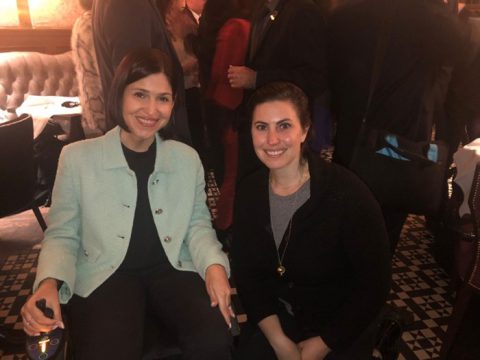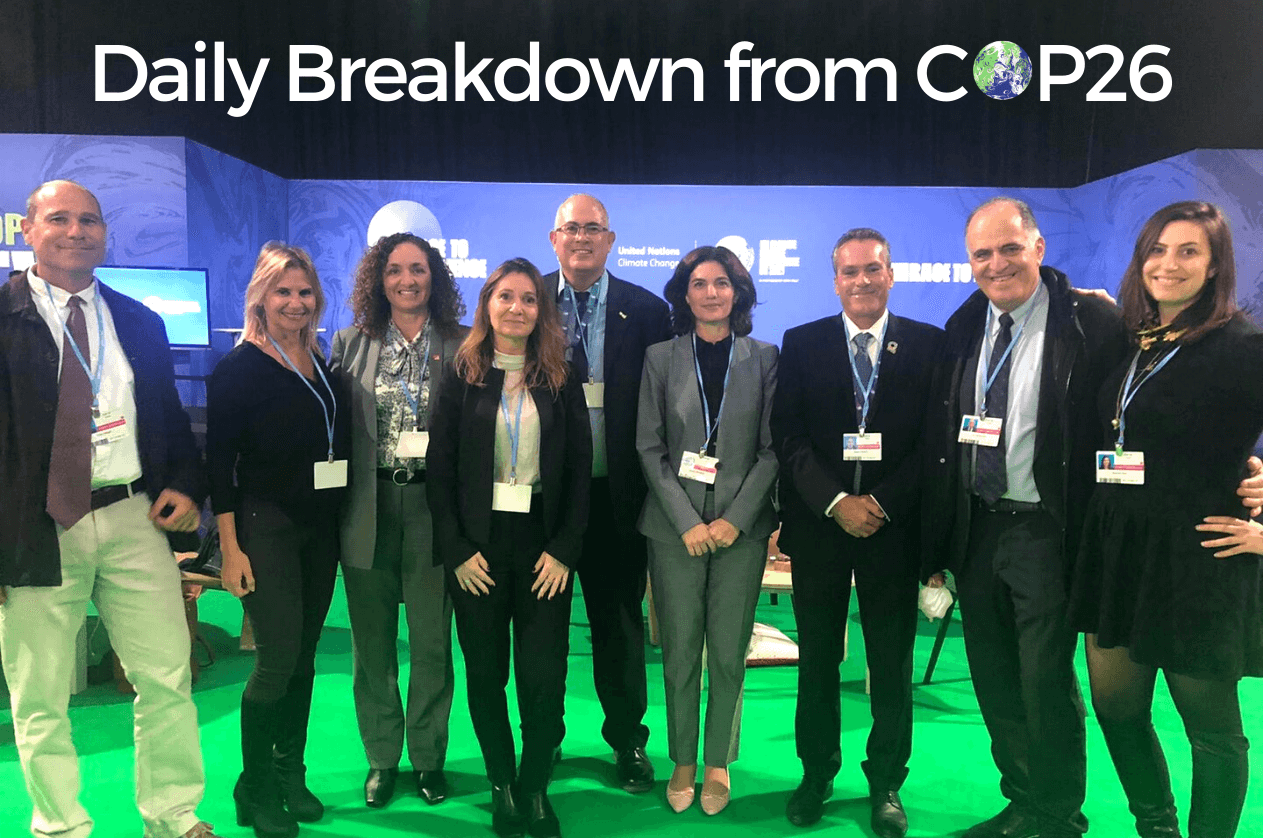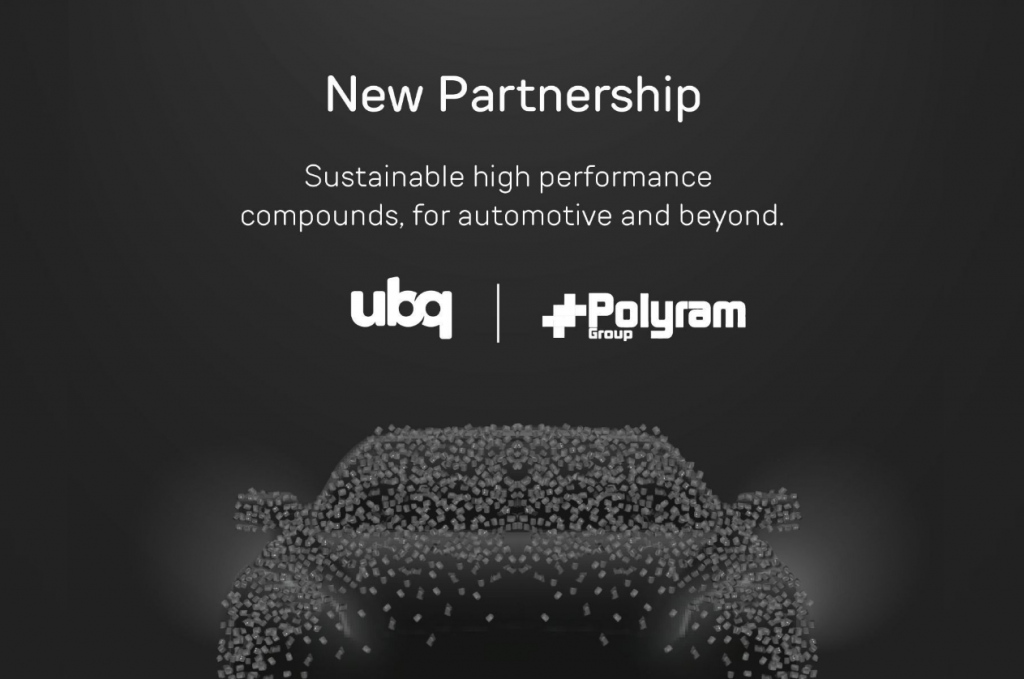Join our VP of Sustainability, Rachel Barr, as she provides daily updates from COP26 (the 26th meeting of the Conference of the Parties to the United Nations Framework Convention on Climate Change).
Monday, November 1, 2021
When you’re on your way to a climate conference, even your commute is an opportunity to learn. The first day at COP26 couldn’t have started off any better, after a thought-provoking conversation with Deidre Brock, UK Member of Parliament for Edinburgh North and Leith. We spent the train ride from Edinburgh to Glasgow talking about the potential for tidal energy to provide clean energy to Scotland and her work on the parliamentary group for plastic packaging. After a year and a half of virtual conferences, it feels great to be here. These chance meetings just aren’t possible through Zoom.
Even though we’ll likely be unsatisfied with the results of the negotiations when it’s all said and done, right now we can’t help it—it’s such a thrill to be among others who share a passion for climate action. We have different languages, different spheres of influence, different specific objectives—and yes, many competing interests—but we understand the stakes and we’re willing to work for a better world.
After a period of low collaboration between the Israeli government and industry in terms of climate change, it is encouraging to see the government embracing the huge potential for Israeli startups to support environmental progress, both at home and around the world. It is an honor to be here with the Manufacturing Association of Israel as part of the Israeli delegation, using every tool within our reach to address the climate crisis, and putting up barriers between innovators and government leaders is a waste of time that we cannot afford.
Another memorable encounter today was meeting Moran Sol Broza, who had heard my companions in the Manufacturing Association of Israel speaking Hebrew. She explained that she was David Broza’s daughter and was at COP26 as an activist with Fridays for the Future, advocating for the preservation of the Amazon. I introduced her to the Minister of Environmental Protection, Tamar Zandberg, who welcomed her not only as the daughter of a national treasure but as an activist. The Minister pledged to highlight the Amazon as an environmental and human rights issue.
Tomorrow, I’m looking forward to spending as much time as possible at the Methane Pavilion. Action on methane is likely to be the silver lining of this COP. It’s really never gotten the attention it calls for from policy makers, but that has finally begun to change thanks to research like the UN Environment Programme’s Global Methane Assessment. This fall’s announcement of the Global Methane Pledge, which will be formally launched tomorrow, has catalyzed scientists, activists, and innovators from the oil and gas, agriculture, and waste sectors. It’s this last sector where UBQ can make a difference, as we divert unsorted waste—including all organics—from landfill, preventing the production of methane. I can’t wait to share UBQ’s story, make new connections, and learn everything I can.
Tuesday, November 2
Today, as expected, the big excitement was around the Global Methane Pledge. I watched the announcement from the Methane Pavilion, among many people who have been working on the pledge with their NGOs for the past year.
Many people stressed the same points we’ve been discussing at UBQ—especially the need for an organizing body around methane and for accurate measurement and monitoring. It has become clear that current modeling methodologies severely underestimate emissions. For UBQ, this impacts our ability to accurately assess our potential climate benefit. For governments signing onto the Global Methane Pledge, how can they reduce global methane emissions 30% below 2020 levels if they don’t know how much methane was being emitted in 2020?
The International Methane Emissions Observatory (IMEO) offers some hope that we’ll be able to answer these questions. The IMEO is a newly launched independent body that will provide public data on methane emissions, to be funded by governments and NGOs. This will include data from direct measurements and remote sensing, so it will be considerably more accurate than current estimations.
It’s amazing how many connections you can make just standing in line—for food, for the bathroom, for an event. Once again, I met many interesting people, but the one who sticks in my mind is Azzam Jawad Mahdi Alwash. We had a wide-ranging conversation touching on water scarcity, the potential for peace in our region, and the humanitarian impacts of climate change. His optimism in humanity’s capacity to work together was inspiring.
Wednesday, November 3
On the third day, during the reception for the Israeli delegation, I had a conversation that will remain one of the top highlights of my COP26 experience.
It was a pleasure meeting Israel’s Minister of Energy, Karine Elharrar. Minister Elharrar has been the subject of international headlines because she was unable to access the COP26 venue on Monday in her wheelchair. This lack of accessibility and preparation has come as a shock to many, especially as it occurred at an event organized by the UN. Similarly, there is a lack of accommodation for deaf and hearing-impaired people within the venue, as livestreams are presented without closed captioning or sign language interpretation. Those committed to working for climate action in any capacity, whether through government, NGOs, academia, or corporations, must try harder to meet everyone’s basic needs. We must do better.
Minister Elharrar’s story touched me on a personal level, which it was an honor to share with her. As the UN’s Sustainable Development Goals (SDGs) were being developed, I was part of a group of activists who pushed to incorporate more inclusive language in the SDGs, with some success. As inexcusable and unnecessary as her experience had been this week, her visibility as a government minister—one who uses a wheelchair, who demonstrates grace under pressure, who is determined to do her job—had changed mindsets and inspired countless young people. Organizers of future COPs will not make the same mistake again.

Israeli Minister of Energy, Karine Elharrar, with UBQ’s VP of Sustainability, Rachel Barr
It was also a pleasure to speak with Ziv Deshe, Mayor of Zichron Yaakov and Chairman of the Environment Committee for the Federation of Local Authorities in Israel. He has come to COP26 to learn about adopting managerial practices in Israeli cities that will align with net-zero pledges. We discussed C40, a network of almost 100 mayors who are dedicated to climate action.
C40 also works to support cities in making a net-zero pledge and joining the Race to Zero, a coalition that UBQ Materials is proud to be a part of. When a company or government first makes a large commitment like net-zero emissions, they might feel overwhelmed. However, there are resources available, and it helps to share information and ideas with other people working on the same problem. We all need to work together if we’re going to meet the goals of the Paris Agreement.
Monday, November 8
With the beginning of the second week of COP26, it is clear that the COP is becoming a community. That may seem incredible after such a short time and with so many people attending so many different events, but it speaks to the dedication we all share for this work.
The day was filled with connections and relationships, both old and new. It began with Drew Shindell, one of the leading climate scientists working on methane and a scientific advisor to UBQ. Drew has been sounding the alarm on methane for years and was the Assessment Chair for this May’s Global Methane Assessment. Since he has played such a large role in bringing this powerful GHG to the public consciousness, it’s really no surprise that I ran into him at the Methane Pavilion, but it was a great way to start the morning.
As the day went on, I saw a cousin who works on emergency response and a group of students and alumni from the Yale School of the Environment, my alma mater, as well as Colin Price, who runs the Porter School of the Environment at Tel Aviv University. From family to grad school to Tel Aviv, it almost feels like every aspect of my life is starting to converge at the COP! After a year and a half of limited travel and personal interaction, it’s been energizing to have the opportunity for these chance encounters.
Equally important are the new networks being built, largely around the Global Methane Pledge. The organizers and activists frequenting the Methane Pavilion are now familiar faces, even as new people arrive every day to follow what has been the most exciting development of the COP. Today, we gathered there to hear former President Barack Obama say, “Curbing methane emissions is currently the single fastest and most effective way to limit warming.” It was heartening to hear someone we admire so much speak on this important topic. I look forward to working with this coalition to explore how UBQ can help address the ambitious target of reducing worldwide methane emissions 30% by 2030. Such a swift transition will require all actors working together, from governments to NGOs to private businesses.
Tuesday, November 9
Today was Gender Day at COP26, recognizing the disproportionate impacts of climate change on women and girls. Despite my training as a climate change economist, I was not very aware of this implication of climate change before I came to the COP. One statistic shared by the UNFCCC is that women and children make up 80% of the people displaced by climate change, but this is only one of many ways, large and small, that gender interacts with climate. Once you become aware of this, it seems natural—after all, the climate emergency is already affecting every aspect of life for many people around the world, and gender plays a large role in our socioeconomic dynamics.
One thing that is clear from my own observation is that, despite developments over the past several decades, the majority of COP attendees are still men, and this is even more true for the panelists. The optimist in me believes that this will continue to change and that we will see more and more women in positions of authority. We must part ways with many of the old systems that no longer serve us, and this includes allocating a disproportionate amount of power and influence to one gender. In this light, as a woman, I’m even more grateful for the opportunity to represent UBQ at COP26.
It was unintentional, but somehow fitting, that on Gender Day the most memorable conversations I had were with two women. With Dr. Agnes Soucat, I discussed the inadequacy of our current systems, with their siloed approach and lack of interdisciplinarity, to manage wicked problems like climate change and the Covid-19 pandemic. Dr. Soucat works at the intersection of public health and the climate and is well placed to see the connections that many of us miss.
I also spoke with Jennifer Hubbard, CEO of Polar Knowledge Canada, about her work in Nunavut, Canada—so far north that you have to travel south to see the northern lights. Cut off by geography from supply chains and trade networks, anything the residents of Canada’s northernmost outposts bring in or out must travel by plane or barge, including their waste. In most cases, they resort to open burning of their trash, leading to chemical-laden smoke that hangs over the towns and sticks in people’s throats. She was excited to hear about UBQ and saw immediately that it could be the solution they need. Again and again, I am awestruck at the UBQ’s potential to make the world a better place.
The final highlight of Gender Day did involve a man—I saw John Kerry pass by on his way to the Climate and Clean Air Coalition’s ministerial meeting on short-lived climate pollutants, and even sneaked a picture. Seeing the former US Secretary of State and current Special Presidential Envoy for Climate in person was a reminder that the decisions made here will have real impacts for all of humanity. The eyes of the world are on Glasgow in these closing days of the summit.
Stay posted and follow us on Twitter for live updates.


